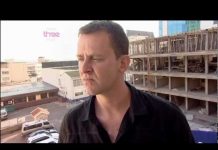The worst drought in 60 years has left some 13 million people across the Horn of Africa in crisis, with Somalia bearing the brunt of the disaster. As the world watched, tens of thousands of Somalis fled famine and fighting in the devastated Southern part of the country, seeking refuge in Mogadishu and refugee camps in neighboring countries. Tens of thousands of Somalis have died, and the UN has warned that three quarters of a million more are at risk of dying before the end of the year.
The causes of the crisis are complex, with Somalia’s weak government, armed groups like al-Shabab, and the politicization of aid all contributing to the deadly consequences of the drought. But beyond the politics, the Horn of Africa crisis is a human tragedy, with millions of people facing starvation, displacement, and death.
In this two-part series, Fault Lines travels to Mogadishu to meet refugees who have fled to the most war-ravaged city in the world to escape a worse fate, and the aid and medical workers struggling to help them. We examine the legacy of US engagement in Somalia and its efforts to address the current crisis, and ask whether aid in this region has become too politicized.

































